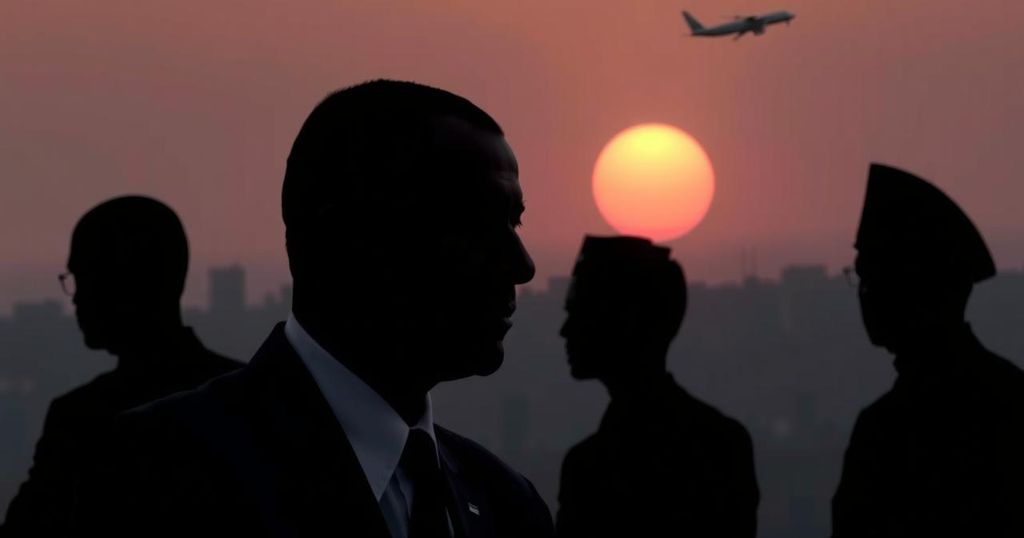Arrest of Potential Successor to Benin’s Presidency Raises Political Concerns
Olivier Boko, a key political figure in Benin and potential successor to President Patrice Talon, was arrested by individuals claiming to be from the anti-crime brigade in Cotonou. His arrest raises political concerns as he showed ambitions for the 2026 elections. No official confirmation of the arrest has been provided by local authorities.
Olivier Boko, a prominent Beninese entrepreneur and a potential successor to President Patrice Talon, was apprehended in Cotonou during the early hours. The French newspaper “Le Monde” reported this arrest, noting that individuals identifying themselves as members of the anti-crime brigade carried out the operation. There has been no official confirmation from local authorities or police regarding the incident. Boko, who leads the food supply group “Dfa,” has been a loyal collaborator of Talon for approximately two decades. Recently, however, he has exhibited signs of political aspirations, hinting at a potential candidacy for the presidential elections scheduled in 2026, placing him in opposition to the current head of state. Under the provisions of the Beninese Constitution, Talon is ineligible for re-election, given that he is currently serving his second term. Furthermore, it was reported that Oswald Homeky, a former Minister of Sports who resigned last year following his support for Boko’s prospective candidacy, was also arrested during the incident. The situation has raised concerns regarding the political landscape in Benin, particularly regarding the implications of Boko’s ambitions and the government’s actions against potential opposition figures. Furthermore, the lack of official confirmation from the authorities suggests a climate of uncertainty surrounding political dissent and the treatment of opposition within the country. In summary, the arrest of Olivier Boko marks a significant event in the political narrative of Benin, as it not only highlights the tensions between the current government and prospective political challengers but also raises questions about the future of democratic processes in the nation.
The political climate in Benin has been notably tense in recent years, particularly following President Patrice Talon’s administration, which has faced criticism for suppressing dissent and curtailing political freedoms. The Constitution of Benin explicitly prohibits the sitting president from seeking a third term, leading to speculations about succession and the formation of opposition parties. Olivier Boko, a long-time ally of Talon, has recently indicated his interest in pursuing the presidency, suggesting a shift in alliances and the potential emergence of political rivals within the current administration. The recent arrest of Boko raises questions about the stability of the regime and the treatment of individuals with political aspirations contrary to the government’s direction.
The arrest of Olivier Boko underscores the complexities and challenges within the Beninese political system, particularly regarding the treatment of potential opposition figures. As Boko had begun to articulate ambitions for the 2026 presidential elections and distancing himself from President Talon, his apprehension raises critical concerns about political freedom and the health of democracy in Benin. The involvement of significant political figures, such as Oswald Homeky, points to a broader context of political repression, necessitating a deeper examination of the current government’s stance on opposition and electoral prospects as the nation looks ahead towards future elections.
Original Source: www.agenzianova.com




Post Comment